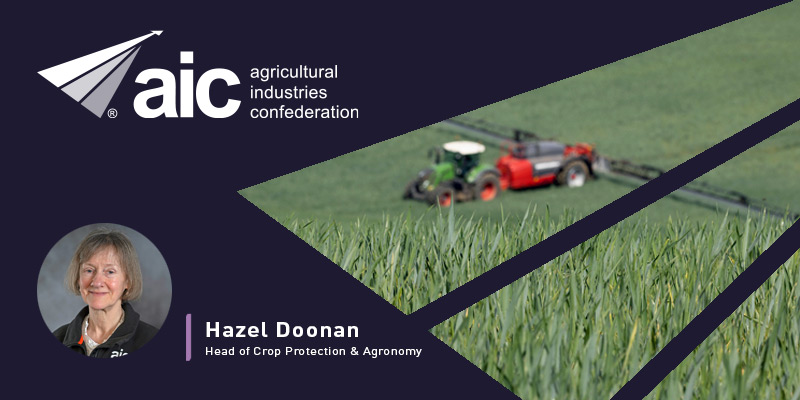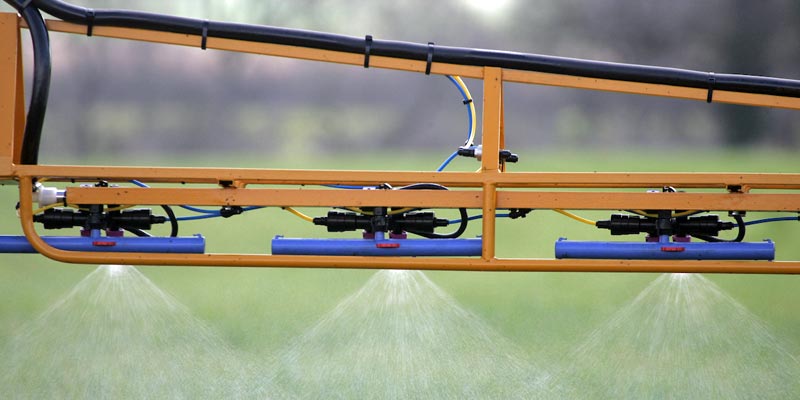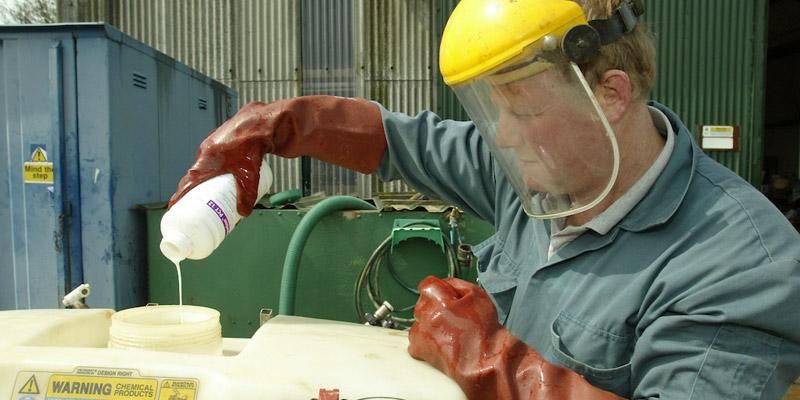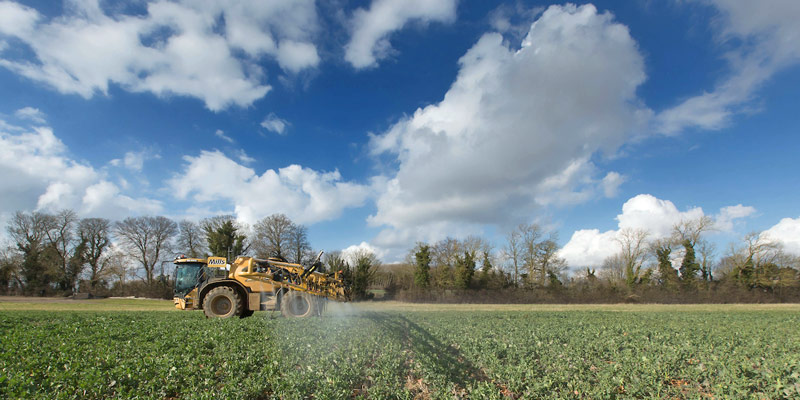Blog: What UK agriculture needs the Government's National Action Plan on Plant Protection Products to deliver

The Government's long-awaited - and much-delayed - National Action Plan for the Sustainable Use of Plant Protection Products is tipped to be published soon.
On National Plant Health Week 2024 (6-12 May), the Agricultural Industries Confederation's Head of Crop Protection and Agronomy Hazel Doonan sets out what UK agriculture needs it to achieve.
The UK National Action Plan (NAP) aims to minimise the risks and impacts of Plant Protection Products (PPPs) - which include insecticides, fungicides and herbicides - on human health and the environment while making sure that diseases, pests and pesticide resistance are managed effectively to help farmers and growers produce the healthy crops we all need.
The NAP will be a framework document under which UK legislation, voluntary measures and best practice will be used to achieve the plan's objectives.
Working with its Member businesses in the Crop Protection sector which supply farmers and growers with agrochemical products and agronomic advice, AIC responded to Government consultation on the draft NAP which closed in February 2021.
We've been waiting ever since to find out exactly what the final plan will include. With the consultation phase now a distant memory, I've been told that the plan is expected to be published "very soon".
The NAP has the potential to drive forward an efficient Great Britain pesticide regime which can continue to protect human health and the environment, but better enable food production in the UK.
Here's what AIC hopes to see once it is finally unveiled, making for a pragmatic and efficient approach to pesticide regulation which means the UK is better placed to continue to produce wholesome, affordable food.
Smarter regulation
So much has changed since the first NAP was published in back 2013 [PDF], not least the UK's withdrawal from the European Union which has presented an opportunity to move away from the EU precautionary hazard-based PPP regulations.
A Great Britain regime which is risk-based, more efficient than the EU system, and better reflects UK climate and agricultural practices would enable AIC Member businesses to better understand which PPPs may be available to help with crop protection decision-making with their farming clients.

This doesn't mean reducing human health or environmental protection. On the contrary, it can lead to better outcomes in both of these areas as decisions on PPP approvals and withdrawals would be based solely on robust scientific data instead of emotion and politics, as we have seen in the EU in some cases, and which offer no protection for human health of the environment.
As with all regulations, the impact on other policy objectives must be considered in the round to avoid unintended consequences - for example, understanding how PPP use can minimise food waste by controlling insect pests in stored grain and by controlling weeds allowing for reduced cultivations, ultimately helping the UK meet its net zero goals by 2050.
AIC Members have also asked that pesticide regulations allow for assessment and earlier access to new technologies, such as novel application methods and products.
Integrated Pest Management (IPM)
AIC supports a holistic approach to IPM which considers economic, resistance management and end market requirements. IPM is a coordinated and planned strategy for the prevention, detection and control of pests, weeds, and diseases in crops.

The most appropriate IPM actions do not follow the inflexible approach proposed in the draft NAP where it was suggested that chemical control, including biopesticides, was only to be used when other IPM approaches had been ineffective or were unavailable.
Practical IPM on farm must consider the most appropriate measures for each field at the time of crop inspection.
Safe and responsible use
All sellers and users of professional PPPs must hold the relevant certificates of competence. However, there is evidence that some internet sellers are uncertificated and that uncertificated users purchase and use professional PPPs.

In many cases, these purchases are delivered by carriers who are unaware of the contents of the packages and so do not know how to contain PPP spills in the event of an accident - this risks human health and environmental damage.
AIC Members are concerned by the increased risk of pollution incidences by this practice, as well as the professionalism of the industry being undermined.
We want the NAP will introduce tougher requirements at the point of sale for professional PPPs sold online.
Measuring progress towards minimising risks and impacts
The effects of PPP use on biodiversity and the environment are incredibly difficult to measure accurately because many factors such as the weather, habitat availability and wider human activity all have significant impacts which vary from year to year.
AIC Members agree that the current metrics on the weight of PPP used, and the area treated as reported by independently collated usage statistics, don't directly equate to risk.
For example, the data doesn’t reflect the decreasing use of broad-spectrum PPPs which have led to the increased use of more weed, pest and disease-specific products.

A Pesticide Load Indicator (PLI) is being developed, combining active substance properties and the PPP use statistics to provide a more intelligent risk indicator.
However, AIC Members would like to know more about how the Department for Environment, Food and Rural Affairs (Defra) plans to use and report on the PLI.
In short, AIC and the agri-supply industry want to see the UK Government seize the opportunity to develop an efficient, pragmatic GB regulatory regime.
Watch the video below to find out more about the UK's Crop Protection & Agronomy Sector.



